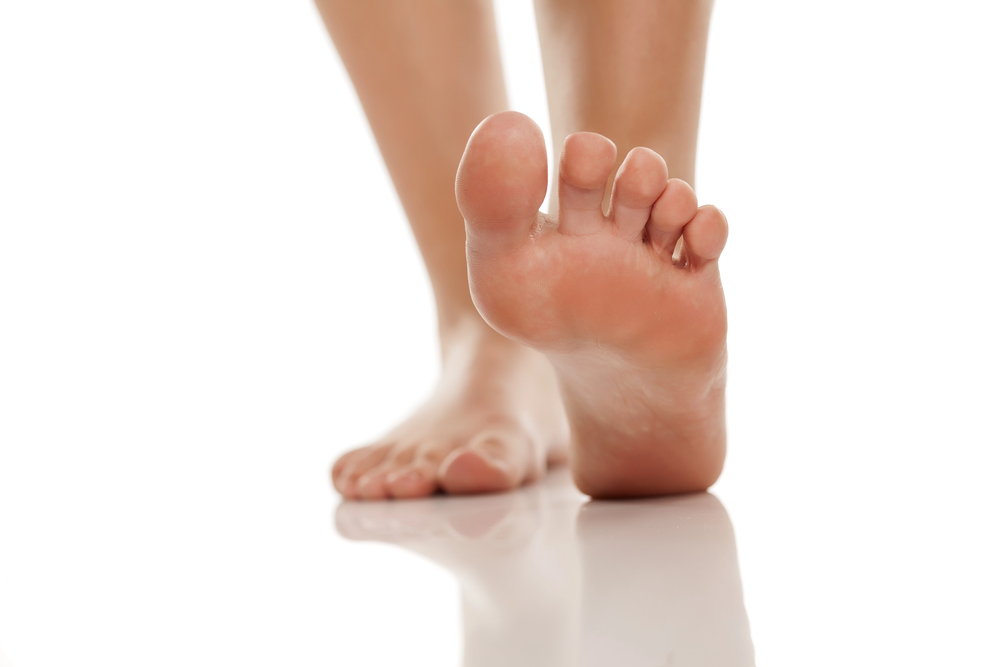
In diabetes care, taking care of your foot health is very important. By learning how diabetes affects our feet and how custom orthotics offer needed support, we can make better choices for our feet and overall health.
Diabetes can cause many complications, and foot problems are a major issue. Nerve damage and poor blood flow can lead to foot pain, numbness, tingling, and wounds that heal slowly. These issues can make people more likely to get infections and ulcers. If these problems are not treated, they can have serious effects. Finding problems early and managing them well is important to keep feet healthy.
It is vital to get medical help immediately if you notice any foot problems like sores, redness, swelling, or changes in skin color. By dealing with these issues quickly, we can lower the chances of more complications and ensure proper diabetes care.
Diabetes can harm foot health in different ways. First, high blood sugar can hurt the nerves in the feet. This condition, called neuropathy, can cause feelings like numbness, tingling, and pain. It also makes it hard to feel injuries.
Next, diabetes can reduce blood flow, especially to the feet. Poor blood circulation means wounds heal slowly. It can lead to a higher risk of infections and ulcers.
Finally, diabetes can cause foot problems, including plantar fasciitis and hammertoes. Plantar fasciitis causes pain in the heel and arch, hurting movement and overall life quality. To deal with these problems, controlling blood sugar, caring for the feet regularly, and using supportive devices such as custom orthotics is important.
Custom orthotics mainly help with foot problems. However, they can also support health in the rest of the legs for people with diabetes. They work by improving how the foot moves and can help alleviate ankle pain. This can reduce strain on the joints and alleviate joint pain. As a result, it may lower the chances of knee pain and hip pain. It also promotes better blood flow, which is important for preventive care.

Custom orthotics, including accommodative orthotics, are important for managing and preventing foot problems in people with diabetes. These special prescription orthotics help support and align the feet. They reduce pressure points and help distribute weight better. By focusing on these body mechanics, custom orthotics lower the risk of foot issues like ulcers and calluses.
They work by tackling the main reasons for foot problems, which often come from misalignment and poor foot movements. Custom orthotics should be used along with regular diabetes care and foot care to improve overall foot health.
Custom orthotics have many benefits for people with diabetes. They help by spreading out pressure from sensitive parts of the feet. This is important because even small cuts can turn into ulcers due to less blood flow and possible nerve damage. Other major benefits include better balance and stability.
Custom orthotics help align the feet and support the low arches, evenly distributing your body weight. This leads to a more natural and steady walk. It can help prevent falls and injuries, which is very important for those with diabetic neuropathy. Also, custom orthotics can relieve pain by reducing pressure on the foot, ankle, and knee joints.
This is especially helpful for anyone dealing with foot pain from plantar fasciitis, sharp heel pain from heel spurs, or lower back pain related to other issues made worse by diabetes. By tackling these different parts of foot health, custom orthotics improve the overall quality of life for those managing diabetes.
Custom orthotics are specially crafted shoe inserts designed to address specific foot issues or conditions. Unlike over-the-counter inserts, custom orthotics are personalized to fit the unique shape of your feet, providing tailored support and correction for your individual needs.
While store-bought shoe inserts from shoe stores can give some cushioning and support, they are not as good as custom insoles or orthotics, especially for people with diabetes. Custom orthotics fit better and provide specific support. They are made using accurate molds of your feet, focusing on your foot's shape and movement problems.
On the other hand, regular counter insoles and shoe inserts provide basic support that might not fit your needs. For diabetics who might have foot issues, this difference matters a lot for effective pain relief. Custom support from prescription orthotics helps reduce pressure on sensitive spots, lowering the chance of ulcers and other issues.
Also, the quality and strength of the materials matter. Custom orthotics are often made from stronger materials that last longer. This makes them a smart choice to invest in for the future.
When choosing the best custom orthotics that match the contours of your feet, it's important to get help from a qualified healthcare provider. They can guide you based on your needs, activity level, and foot shape. A thorough examination by healthcare professionals helps them suggest the right type of custom orthotic for you, including information on the cost of custom orthotics.
Several factors will affect your choice. These include arch support, choice of materials, and length design. The length of the design may cover the full foot or focus on specific areas. This customized approach makes sure that people with diabetes get orthotics made for their specific needs. This helps improve comfort, support, and foot health overall.
When looking for custom orthotics, focus on a few important features. The most important is good arch support made for your foot shape, specifically designed to support the three-foot arches. Good arch support helps your feet align correctly. It also reduces pressure on the plantar fascia and helps your foot mechanics.
The materials used are just as crucial, especially for people with diabetes. Choose orthotics made from strong, moisture-wicking, and antimicrobial materials. These features help the orthotics last longer and keep your feet healthy.
You may also want other features like metatarsal pads for pain in the ball of your foot. Heel cups can give you extra cushioning and stability, making them more comfortable for various foot conditions. They come in different shapes, so think about how you will use the orthotics, whether for everyday activities or specific sports. This will help you choose the right orthotics for each situation.
Adjusting to custom orthotics takes time. Start wearing them for short periods, especially if you experience leg pain. Then, slowly increase the time you wear them. This helps your feet get used to the support they provide. Most people notice better foot comfort and less pain, but it is normal to have a short adjustment period.
It is also important to choose shoes that fit well with the orthotics. Shoes should have enough depth and width to hold the orthotics without squeezing your feet. Regular visits to your healthcare provider are key. They can track your progress and help with any changes needed for your orthotics.
By following these tips and the advice of professionals, you can use custom orthotics in your daily life. This can lead to better foot health and improved overall well-being.
As with any new tool, your body needs time to adapt to custom orthotics. It's normal to feel slight discomfort or strange when you first wear them. Your feet are simply adjusting to better support and position. Start by wearing them for short periods. Then, gradually increase the time as your feet adapt to the orthotics.
Talk to your healthcare provider if you notice any ongoing discomfort or rubbing. They can adjust the fit and ensure the orthotics sit right on your feet. Remember, using them regularly is important.
The main goal is to make wearing orthotics part of your daily life. You will likely see great benefits as your body gets used to them. This includes less pain, better balance, and more comfort in your daily activities.
Custom orthotics are crucial in preventing foot complications for individuals with diabetes by offering tailored support and comfort. Understanding the impact of diabetes on foot health is essential, as this knowledge highlights the benefits of custom orthotics in diabetes management. Choosing the appropriate custom orthotics with key features and ensuring a proper fit enables better foot care and enhances overall well-being. Adapting to wearing and maintaining custom orthotics is an important aspect of their effective use. For optimal foot care related to diabetes, custom orthotics provide personalized support that can be beneficial daily. Remember, effective foot care is vital for successful diabetes management. For more information on custom orthotics and how they can benefit individuals with diabetes, consider visiting Belden Village Chiropractic and Wellness Center.
References:
https://www.hss.edu/article_custom-orthotics-advice.asp
https://orthoinfo.aaos.org/en/treatment/orthotics/
https://my.clevelandclinic.org/health/treatments/orthotics